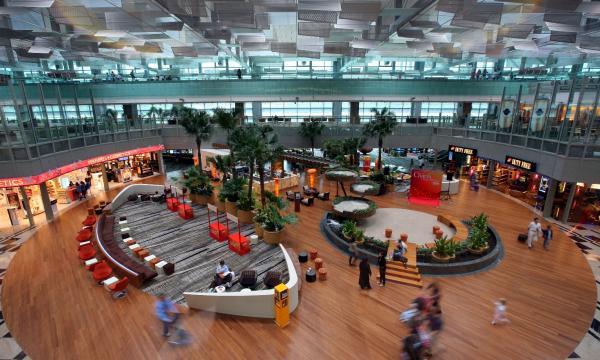
Changi Airport fares to be one of Asia's highest over new development levy
Departing passengers will be charged $13.3, 39% higher than the previous fee.
The new Passenger Service Charges (PSC) structure to be implemented on 1 July 2018 will make Changi Airport one of the costliest airports for passengers in Asia Pacific, UOB Kay Hian said.
The airport development levy on departing passengers will fund the development of the third runway and Terminal 5, a report said. PSC will rise by 39% to $13.30 for departing passengers, whilst the cost for transiting passengers will rise by $3 per pax.
In addition, PSC for departing passengers will rise by $2.5 annually till 2024. Landing, Parking & Aerobridge (LPA) fees will also be raised by 1% annually till 2024.
“Several airlines have stated that they will not absorb the increase in PSC, and this will raise overall ticket prices for passengers. Low-cost travellers, who account for 30% of Changi’s throughput, will be the most price sensitive,” said UOBKH analyst K Ajith.
The potential decline in pax throughput at Changi may result in slower growth, he said. Pax throughput at Changi could grow by 5% in 2018
Visitor arrivals growth was strongest from China and Indonesia and low-cost carrier (LCC) seats account for 30% and 45% respectively, between Singapore and the two countries. “We also note that Changi’s current YTD passenger throughput growth is already 1ppt lower than in 2017 and growth over the past three years has lagged other airports in the region,” he added.
This could present headwinds for aviation companies. Airlines’ profitability could be impacted, especially for low-cost carrier (LCC) passengers travelling on Scoot – Singapore’s largest LCC by seat capacity (42%) – which will see a 4.2% hike in overall fares due to increased PSC.
“Incremental PSC is 164% and 37% of Scoot’s and SIA’s operating profit per pax in FY2018 respectively, indicating lower ability for Scoot to absorb additional costs without impacting profitability,” Ajith said.
Whilst the increase in PSC may appear to be a relatively minor, it amounts to 1.5x the operating profit per pax in FY2018 for both SilkAir and Scoot, the analyst said. “If either carrier absorbs part of the increase in PSC, operating profits would be impacted. SilkAir and Scoot contributed 11.4% of total group operating profit in FY2018.”
However, SIA’s newly-implemented seat selection offering and changes to frequent flyer programme could at least partially offset the impact of any absorption of PSC. “We have assumed that SIA’s, Silk Air’s and Scoot’s pax yields would rise by 2.8%, 0.9% and 1.5% in FY2019 respectively,” Ajith added.
Meanwhile, SATS could be impacted by lower pax throughput as it could lead to lower inflight catering meals and pax handling revenue. However, it could still be able to wring out productivity gains from: a) increased automation from an expanded kitchen facility; and b) self-check-in kiosks at all terminals.
Lastly, for SIA Engineering, a potential decline in pax throughput as a result of rising PSC is unlikely to impact aircraft movements, thus UOBKH does not expect any material impact on SIA EC’s earnings.
























 Advertise
Advertise










